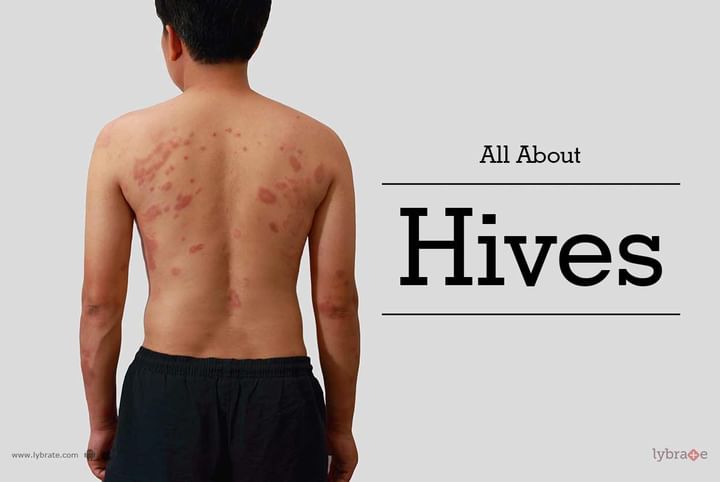All About Hives
If stressed, consuming certain food and medications can trigger skin rashes. This kind of rash is called hives. It is also known as urticaria. Anyone can be affected by hives, at least 20% of people are affected by hives at some time or the other in their lives. The itching could be severe or mild. It starts as a patch of scaly white skin that develops into red welts over time. To make sure the itching does not worsen, scratching, emotional stress, alcoholic drinks and exercise should be avoided.
Symptoms:
- Itchy bumps that are raised and are either red or flesh coloured
- If the hive is pressed in the middle, the skin whitens this symptom is called blanching.
- The hive formation can appear anywhere, disappear and then reappear somewhere else.
Common Triggers:
- Certain food like shellfish, eggs, peanuts and other nuts
- Certain medicines like antibiotics, ibuprofen and aspirin
- Insect bites or stings
- Physical causes like pressure, sun exposure, cold, exercise and heat
- Latex
- Blood transfusions
- Bacterial infections
- Pet allergens
- Viral infections like the common cold, hepatitis and infectious mononucleosis
- Certain plants like poison ivy and poison oak
- Pollen
Treatment:
There is no distinct cure for hives. But you can control its symptoms in the following ways:
- Antihistamines help in blocking histamines, which cause the allergy symptoms. Non sedating or low sedating Antihistamines will be mostly recommended by your doctor.
- If episodes of hives are several, it may require limited treatment with prednisone. Prednisone will be able to lessen the symptoms.
- If the symptoms get severe enough so much so that it swells up your tongue and you have problem breathing, then the doctor might prescribe an epinephrine. However, these symptoms can mean another thing, an anaphylaxis shock. Epinephrine is the only treatment for an anaphylaxis shock.
Prevention:
If what caused hives to break out is figured out, then measures should be taken to avoid or eliminate the triggers.
- Avoid eating food items that triggered the symptoms in the first place
- If harsh soaps, frequent bathing cause hives, they should be avoided
- Tight clothing should be avoided
- If cold triggers hives, then wear warm clothing, wrap a scarf and do not swim in cold water.
- Avoid sun exposure and wear sunblock
- If a specific medication is causing the hives, inform your doctor. If you wish to discuss about any specific problem, you can consult a dermatologist.



+1.svg)
